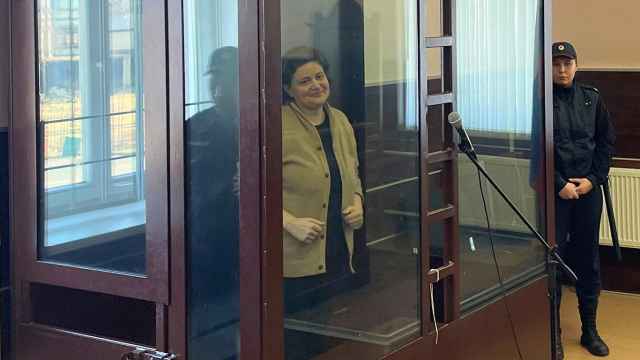Foreign direct investment in Russia reached $36 billion in the first 10 months of the year, Prime Minister Vladimir Putin said Monday during a meeting of the government's commission on foreign investment, citing the Central Bank.
Last year the amount of foreign investment for the same period was $32.2 billion, Putin said.
During its final meeting of the year, the commission approved eight foreign investment requests, Federal Anti-Monopoly Service deputy director Andrei Tsyganov said.
French IT company Atos gained approval to provide services for the 2014 Olympics and the 2018 football World Cup. Atos will invest more than 1.5 billion rubles ($48 million) in the Russian economy by 2014.
Putin said it was a "smart" decision by Atos, adding that the nation needs more of such investments.
The commission approved an investment from the European Bank of Reconstruction and Development, or EBRD, in Moscow firm Belaya Dacha Trading to develop existing and new facilities for packaged salad processing. The EBRD's purchase of shares in several Russian financial services companies was also approved.
Other smaller deals blessed by the commission include foreign investment in cobalt mining and the tire industry. A review of Polyus Gold's plan to change its registration to Britain was delayed and will be conducted next year, Tsyganov said.
Polyus, part-owned by Mikhail Prokhorov, is seeking a premium listing on London's prestigious FTSE Index, but it must first register as a legal entity in Britain before it can qualify.
Several amendments to federal laws that ease foreign investment will come into effect in 2012.
Amendments include lifting government control from investment deals where international organizations such as the EBRD and the International Finance Corporation are investors. Another amendment exempts foreign companies from getting government permission to buy stocks in Russian oil, gas or mining companies if the total share remains under 25 percent.
The government's objective is to create a favorable environment for foreign companies to invest in Russia, in areas such as food, medicine, banking and mining, Tsyganov said.
The liberalization in investment will be good for competition, he added.
"Russian markets have always been open in some way for international investment," Tsyganov said. "For more than a decade we are living in strict competition with foreign entrepreneurs who either invest in Russia or sell their services and products on the Russian market."
Business will work under the new laws starting next year. The commission has approved 128 of 136 investment proposals since its creation in 2008, Tsyganov said.
Last week the State Statistics Service published a report that put the value of direct foreign investment for the first nine months of this year at $11.7 billion. The discrepancy lies in different calculating methods used by the State Statistics Service and the Central Bank. While the State Statistics Service uses figures companies proposed to invest, the Central Bank uses actual numbers gathered from financial documents, Trust National Bank chief economist Yevgeny Nadorshin said.
A Message from The Moscow Times:
Dear readers,
We are facing unprecedented challenges. Russia's Prosecutor General's Office has designated The Moscow Times as an "undesirable" organization, criminalizing our work and putting our staff at risk of prosecution. This follows our earlier unjust labeling as a "foreign agent."
These actions are direct attempts to silence independent journalism in Russia. The authorities claim our work "discredits the decisions of the Russian leadership." We see things differently: we strive to provide accurate, unbiased reporting on Russia.
We, the journalists of The Moscow Times, refuse to be silenced. But to continue our work, we need your help.
Your support, no matter how small, makes a world of difference. If you can, please support us monthly starting from just $2. It's quick to set up, and every contribution makes a significant impact.
By supporting The Moscow Times, you're defending open, independent journalism in the face of repression. Thank you for standing with us.
Remind me later.





